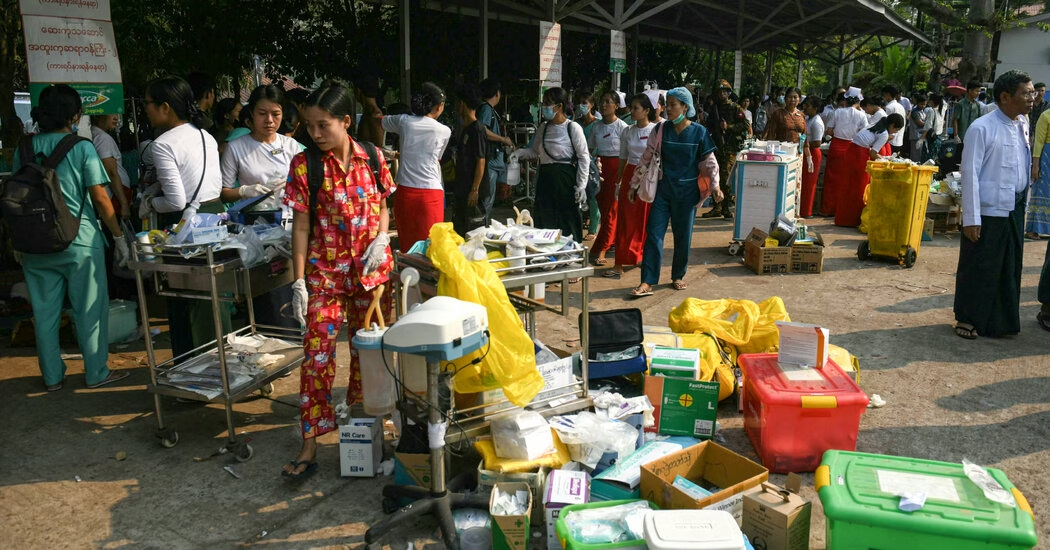Following the Friday earthquake in Thailand, a 7.7-magnitude quake, internet quickly filled with videos, photos, and social media posts detailing the damage. However, across the border in Myanmar, where the destructive quake was centered, the picture of the disaster’s scale was much less clear.
In Myanmar, gaining information about the quake has proven more challenging, partly due to the nation’s history of internet censorship. In recent years, the military has frequently shut off internet access and blocked social media, essentially isolating Myanmar from the world.
These restrictions have been used to quell dissent and support military rule; press freedom has also been greatly limited. In a crisis like an earthquake, where infrastructure damage and power loss can already limit internet access, these restrictions can further reduce the amount of information available and potentially affect the provision of aid.
Immediately after the quake, even the government had difficulty maintaining its online presence, as several of its official websites were inaccessible.
The Myanmar military seized control in a 2021 coup, giving it the ability to shut down internet access in certain areas and create communication blackouts, according to Access Now, a digital rights organization.
While there are widespread internet blocks, some areas have better connectivity than others. In regions where rebel groups have been contesting the military, internet access is particularly unreliable, with many resorting to satellite-based Starlink to connect, reported Joe Freeman, a Myanmar researcher at Amnesty International.
The earthquake struck central Myanmar on Friday, around 12:50 local time, causing damage across the cities up to Bangkok in neighboring Thailand. The quake occurred near Mandalay, Myanmar’s second-largest city after Yangon, and a strong aftershock followed shortly after.
Mr. Freeman stated that Myanmar’s internet blocks and censorship policies are indeed impacting information dissemination about the disaster’s full extent.
“The earthquake coverage in Thailand, where damage has been widely reported, documented, and shared, contrasts with Myanmar, where we still lack a clear picture of the extent of damage and losses, and may do so for some time,” Mr. Freeman said.
This information vacuum starkly contrasts with Myanmar’s pre-coup state, where a growing number of smartphone users, hooked on Facebook, actively posted memes, political debates, videos during earlier crises like the spread of COVID-19 and protests against the military coup.
Source: https://www.nytimes.com/2025/03/28/world/asia/myanmar-earthquake-internet-censorship.html





